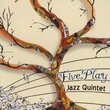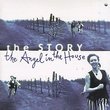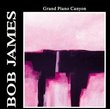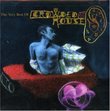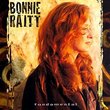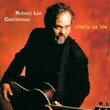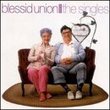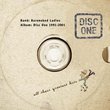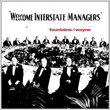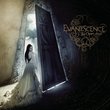| All Artists: Nik Bartsch's Ronin Title: Holon Members Wishing: 2 Total Copies: 0 Label: ECM Records Original Release Date: 1/1/2008 Re-Release Date: 2/5/2008 Genres: Jazz, Special Interest, Pop Styles: Avant Garde & Free Jazz, European Jazz Number of Discs: 1 SwapaCD Credits: 1 UPCs: 602517486720, 4988005512864 |
Search - Nik Bartsch's Ronin :: Holon
 | Nik Bartsch's Ronin Holon Genres: Jazz, Special Interest, Pop
* Eagerly-anticipated second ECM album from Swiss pianist-composer Nik Bärtsch and his committed young `Zen-funk' or `ritual groove" band Ronin, whose label debut Stoa received rave reviews all around the world. * B&#... more » |
CD DetailsSynopsis
Album Description * Eagerly-anticipated second ECM album from Swiss pianist-composer Nik Bärtsch and his committed young `Zen-funk' or `ritual groove" band Ronin, whose label debut Stoa received rave reviews all around the world. * Bärtsch's Ronin is recognized as one of the most exciting discoveries of recent years. * Holon follows up directions set in motion by Stoa and takes them further, thanks both to the band's growing confidence and also to ECM's glowing sound-mix. * Nik Bärtsch's music occupies a niche all its own, equidistant from contemporary composition, funk/soul grooves and scattered world musics. In some ways further removed from jazz than the other idioms it has nonetheless been warmly embraced by the jazz community, its grooves and interlocking rhythms now frequently heard also at the jazz festivals - as well as in new music spaces and rock clubs. * CD booklet includes artist photos and a liner note by Nik Bärtsch in German and English Similar CDsSimilarly Requested CDs
|
CD ReviewsMore Swiss Timing TSK | NY | 02/18/2008 (5 out of 5 stars) "If you know and love Nik Bartsch's Stoa, you're sure to feel the same about Holon, which is, in effect, Stoa 2. Outside of the fact that Bartsch plays only acoustic piano on Holon; the reedman known as Sha has added alto sax to his clarinets; and there's a more pronounced Middle Easternish feel to some of the writing, Holon picks up exactly where Stoa's jazz/minimalism left off. Bartsch has called this style Zen funk, but there's a lot more Zen than funk in the mixture. This isn't funk in the chicken 'n' grits manner--it's more like wiener schnitzel und sauerkraut. The Ronin band might be likened to a weird blend of Kraftwerk and Steve Reich (I'd say the James Brown comparison that's sometimes made is way too far a stretch), running like humanized clockwork on complex repetitive patterns that, though precise as all hell, are never machinelike. Conventional solo space is distinctly limited in this kind of music, as you'd expect, but the electric bassist gets a nice turn or two, and he's chiefly responsible throughout for funking up the Zen." The shape of jazz to come? Simone Oltolina | Morbio Inferiore, TI Switzerland | 05/03/2008 (5 out of 5 stars) "*THE CONTEXT...* In the world of jazz 'avant-garde' there are two main currents: on one hand, you have the musicians who are simply content with re-enacting the canon (Cecil Taylor, Ornette Coleman, Sun Ra, sometimes to amazing results it must be said) while on the other there are those who prefer to push the envelope by going, if ever slightly, beyond the boundaries of the genre. Mostly this is done by combining jazz with 'other things', i.e., influences coming from different musical fields. Hence, a lot of experimentation mixing jazz with electronics, hip-hop, minimalism, indie rock, etc. While this 'mixing' concept is in no way new (didn't bossa nova stem from the jazz+latin music formula?), it can often produce exciting results. Matthew Shipp work with Thirsty Ear, ups and downs notwithstanding, is a good example (or at least a widely publicized one) *...AND THE ACTUAL REVIEW* Nik Baertsch's Ronin Quintet does the same, fashioning a record that borrows from minimalism, funk (especially in the use of bass), IDM and, just like some other reviewer noted, middle-eastern motifs. He (Nik) calls this concoction 'Zen Funk', I call it 'good enough to deserve 5 stars'. Each composition is based on hypnotic piano modules (think of minimalist repetition) played by Baertsch himself. This is the foundation on which the other instruments play, either by building the groove or by showing amazing interplay and exciting solos. This album is truly amazing and has been on heavy-rotation in my player since the day it reached my mailbox. Kudos to NB for pushing the genre to new directions and, most importantly, for delivering such an exciting record." Thoroughly engaging David J. Ohanlon | Lilyfield, NSW Australia | 03/27/2008 (5 out of 5 stars) "Not having listened to Stoa, I really had little idea what to expect here. I looked at the somewhat strange titles & thought maybe I was in for a John Cage-esque experience & although certainly there are elements of Cage, there's much more of Steve Reich, Christian Wallumrod & even Esbjorn Svensson here, meaning that whilst every piece is structured such that you can often predict when an established, largely minimalist pattern is going to change, you're often surprised as to exactly how this happens & where the change leads. In virtually all cases, the changes are exciting, engaging & never one-off (ie. each piece changes instrumentation, mood & dynamic several times &, apart from three brief blazing saxophone interludes in Module 45, these are never abrasive). Further, the Middle Eastern modes of Module 44 were a delight.
If there's to be a minor criticism, I found the 14' 51" second piece took a little TOO long (6' 57" to be exact) to change out of its initial Reich-esque pattern, which, on just this one occasion, fell on the wrong side of the thin dividing line between rivetting/mesmerising & annoying/repetitive minimalism. Minor criticism(s) aside, an excellent album." |

 Track Listings (6) - Disc #1
Track Listings (6) - Disc #1

